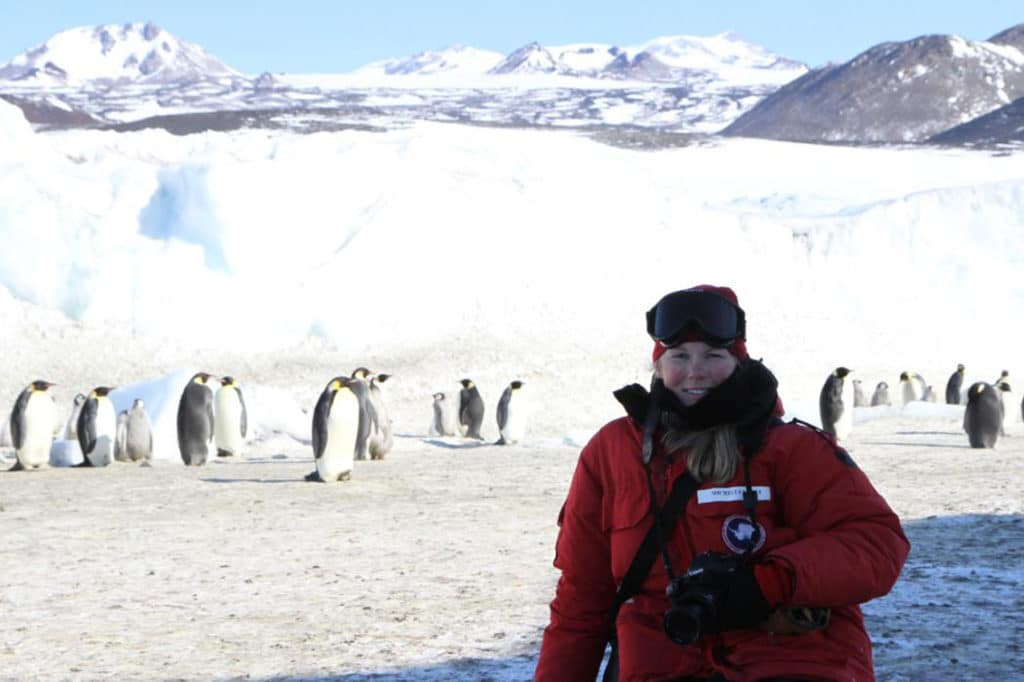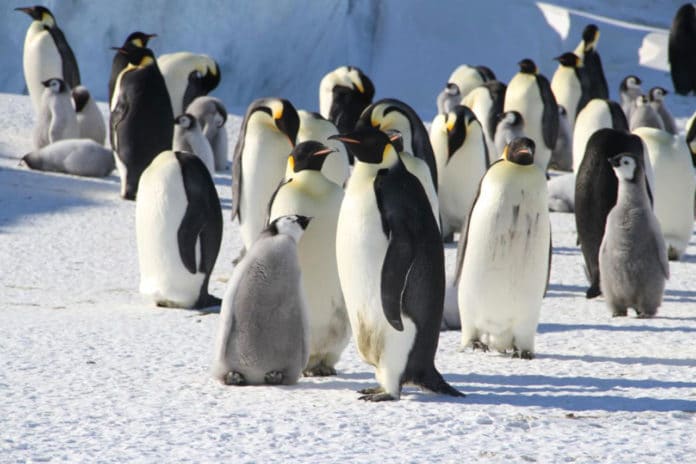The Paris Agreement is a multinational initiative to combat climate change by keeping a global temperature increase in this century to 2°C above preindustrial levels while pursuing efforts to limit the rise to 1.5°C.
Few studies have assessed the ecological impact of the Paris Agreement used ad‐hoc approaches. The development of new specific mitigation climate simulations now provides an unprecedented opportunity to inform environmental impact assessments.
In a new study, scientists at the University of Canterbury (UC) have projected the dynamics of all known emperor penguin colonies under new climate change scenarios meeting the Paris Agreement objectives using a climate‐dependent‐metapopulation model. The study suggests that emperor penguins will be marching towards extinction.
Emperor penguins are some of the most striking and charismatic animals on Earth, but as this study suggests, climate change may render them extinct by the end of this century.
Paper co-author UC scientist Dr. Michelle LaRue, a Lecturer of Antarctic Marine Science in the School of Earth and Environment | Te Kura Aronukurangi, said, “Basically if we don’t hit the Paris Accord emissions goals, emperor penguins are in deep trouble.”

Stephanie Jenouvrier, a seabird ecologist at WHOI and lead author on the paper, said, “If global climate keeps warming at the current rate, we expect emperor penguins in Antarctica to experience an 86 percent decline by the year 2100. At that point, it is very unlikely for them to bounce back.”
Scientists used two existing computer models for this study. The first, a global climate model created by the National Center for Atmospheric Research (NCAR), offered projections of where and when sea ice would form under different climate scenarios. The second, a model of the penguin population itself, calculated how colonies might react to changes in that ice habitat.
The researchers ran the model on three different scenarios: a future where global temperature increases by only 1.5 degrees Celsius (the goal set out by the Paris climate accord), one where temperatures increase by 2 degrees Celsius, and one where no action is taken to reduce climate change, causing to a temperature increase of 5 to 6 degrees Celsius.
Under a 1.5 degree scenario, scientists found that only 5 percent of sea ice would be lost by 2100. It could cause a 19 percent drop in the number of penguin colonies. In case if the planet warms by 2 degrees, those percentages will increase dramatically, and more than a third of existing colonies disappear. The ‘business as usual’ scenario is even more dire, with an almost complete loss of the colonies ensured.
Jenouvrier said, “We’ve been developing that penguin model for ten years. It can give a very detailed account of how sea ice affects the life cycle of emperor penguins, their reproduction, and their mortality. When we feed the results of the NCAR climate model into it, we can start to see how different global temperature targets may affect the emperor penguin population as a whole.”
Other co-authors of the study include David Iles, Sara Labrousse, and Rubao Ji of WHOI; Hal Caswell of WHOI, the University of Amsterdam, and the Max Planck Institute for Demographic Research; Laura Landrum and Marika Holland of National Center for Atmospheric Research; Jimmy Garnier of the Université Savoie Mont-Blanc; Christophe Barbraud and Henri Weimerskirch of the Centre d’Etudes Biologiques de Chizé.
The study is published in the journal Global Change Biology.
